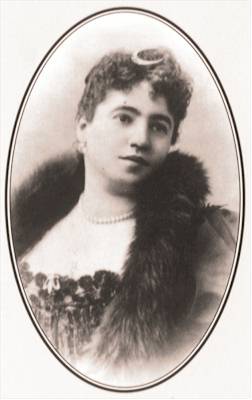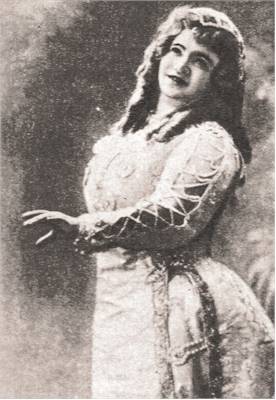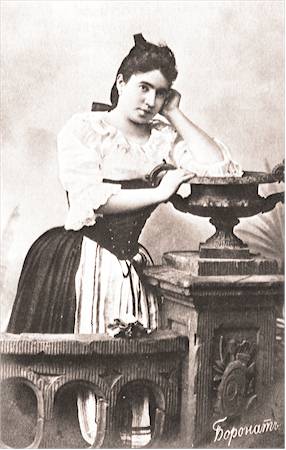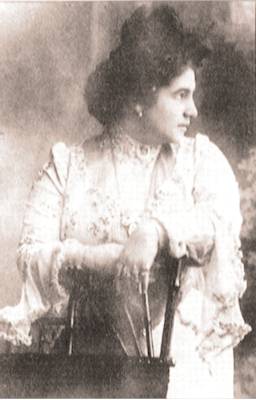Italian-Russian soprano, 1867 (1859 ?) - 1934
Biographical notes:
Born in Genoa, she was heard as a child by the Queen Mother of Italy, who was most impressed and made arrangements for her to study at the Milan Conservatory under Pietro Leoni. Her debut
took place in Naples either in 1885 or 1886, but not at the San Carlo. In the first few years of her career she sang in Central and South America. In 1891, after appearances in Italy and Egypt,
she proceeded to St Petersburg as guest at the Mariinsky Theatre, following it with engagements in Moscow, Kiev and Warsaw. She was a favorite singer of the Tsar. She married a Pole, count
Rzewuski (until 1918 Poland was part of Imperial Russia). According to one authority the marriage took place in 1893, another states 1902. In those days, a marriage into the nobility
would have brought the curtain down on her career. If the marriage took place in 1893, it would have lasted only a couple of years. If it did not take place until 1902, and in 1904 she made her
first records for the G&T company in St. Petersburg. She retired in 1914 and after World War I she moved to Warsaw where she opened a school for singing.
As Juliette
In the title role of Gounod’s Mireille (?) Comment: Her recordings seem to be in high esteem among collectors. Olimpia Boronat is a lyric coloratura soprano of delicacy, sweetness and charme. She is definitively a singer of the 19th century. Her tendency to vary nuances by lenghty morendos may frequently disturb the musical line. In full voice the tone is driven against the hart palate in the upper register and the highest notes are frequently not properly pitched. It is artificial singing, and when listening to this soprano I imagine her standing in one of those Russian “salons” singing Alabiev’s The Nightingale followed by Zardo’s Desiderio. My favorite recordings:
- Caro nome (transposed down a semi-tone to E-flat/ Gilda in Rigoletto / Verdi / G & T 1904) - Desiderio (Zardo / G & T 1904) - So anch’io la virtů magica (Norina in Don Pasquale / Donizetti / Gramophone 1908) - Tutte le feste (Gilda in Rigoletto / Verdi / Gramophone 1908)
|
|||||||||||||||



